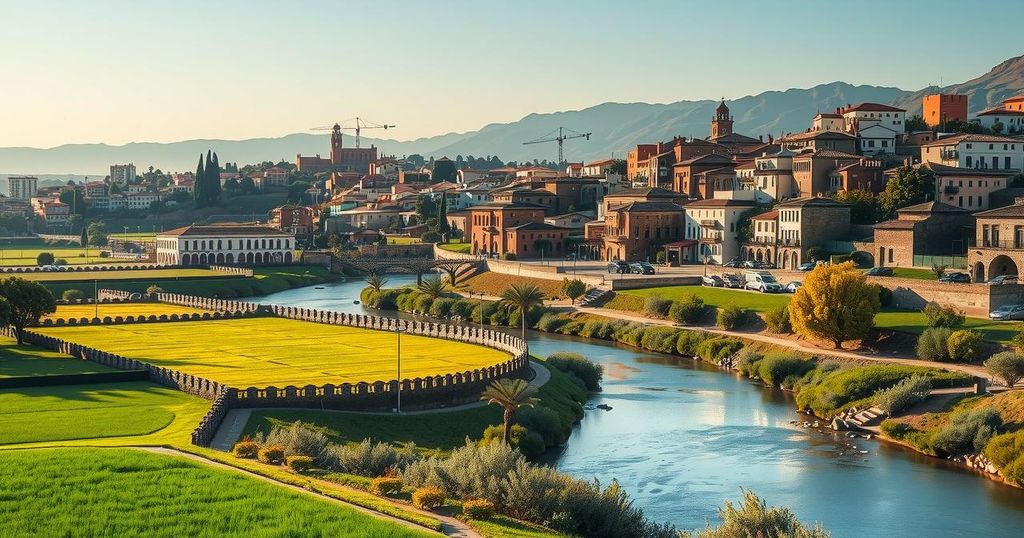Morocco is experiencing significant urban and tourist development, leading to the displacement of local communities and artisans. The post-World Cup tourism boom has spurred new investments, but traditional craftsmanship is threatened as towns are razed for modern infrastructure. Displaced residents face inadequate compensation and uncertain futures, illustrating the need for more inclusive urban planning that prioritizes community voices and sustainable development practices.
Morocco, celebrated for its rich traditional heritage and vibrant local culture, is witnessing significant urban development that increasingly prioritizes tourism over local communities. The rapid urbanization followed the country’s remarkable performance during the 2022 World Cup, boosting tourism and resulting in 17.4 million visitors in 2024, surpassing projections. However, this growth brings challenges, particularly displacement for communities as towns are demolished to build tourist-centric infrastructure.
Recent projects, including Taghazout Bay’s billion-dollar eco-tourism resort and urban renewal initiatives in Rabat and Casablanca, cater to increasing domestic and foreign demand. Despite the potential economic benefits, local artisans face fierce competition from new developments that overshadow their traditional craftsmanship. The once-thriving artisan district of Oulja has largely been leveled, displacing businesses and reducing cultural vibrancy.
Individuals like artisan Younes illustrate the plight of displaced communities, struggling to relocate and salvage their livelihoods. Many artisans have been forced into temporary, less favorable conditions, causing profits to plummet. Without adequate compensation or relocation plans, artisans face uncertainty and significant loss, unable to practice their crafts as previous sites are transformed into luxury hotels.
Morocco’s modernization drive must address the inherent issues of social inequality and inadequate urban governance. Dr. Mohammed Hlal highlights the critical need for participatory urban planning to ensure that local voices are integrated into development agendas. Communities should be engaged effectively through consultations and education, empowering them to advocate for their rights and needs.
Historic communities such as Zenata illustrate the consequences of neglecting local input. Many original residents have been forcibly displaced, receiving insufficient compensation despite losing their homes and history. The story of Rachida, an expropriated widow, underscores the emotional toll of state-led redevelopment, as she and her family were left with memories and little else after their home was demolished.
Furthermore, failed development initiatives, such as the Tamesna and Marchica Lake projects, reveal the disparities between projected benefits and actual outcomes. Significant investments have not only failed to yield the promised results but have also led to severe environmental degradation, further complicating the lives of displaced residents. Sustainable urban planning must be prioritized to ensure that Morocco’s development truly benefits its people without sacrificing community identity or ecological integrity.
In conclusion, Morocco’s rapid urban development, while spurred by an influx of tourism, poses significant challenges for local communities. Displacement, inadequate compensation, and environmental degradation highlight the urgent need for inclusive urban planning. The rights and livelihoods of local residents, particularly artisans, must be prioritized to preserve the nation’s cultural heritage while navigating modernization. Morocco’s approach to urbanization should reflect a commitment to both economic growth and social equity.
Original Source: www.middleeasteye.net




